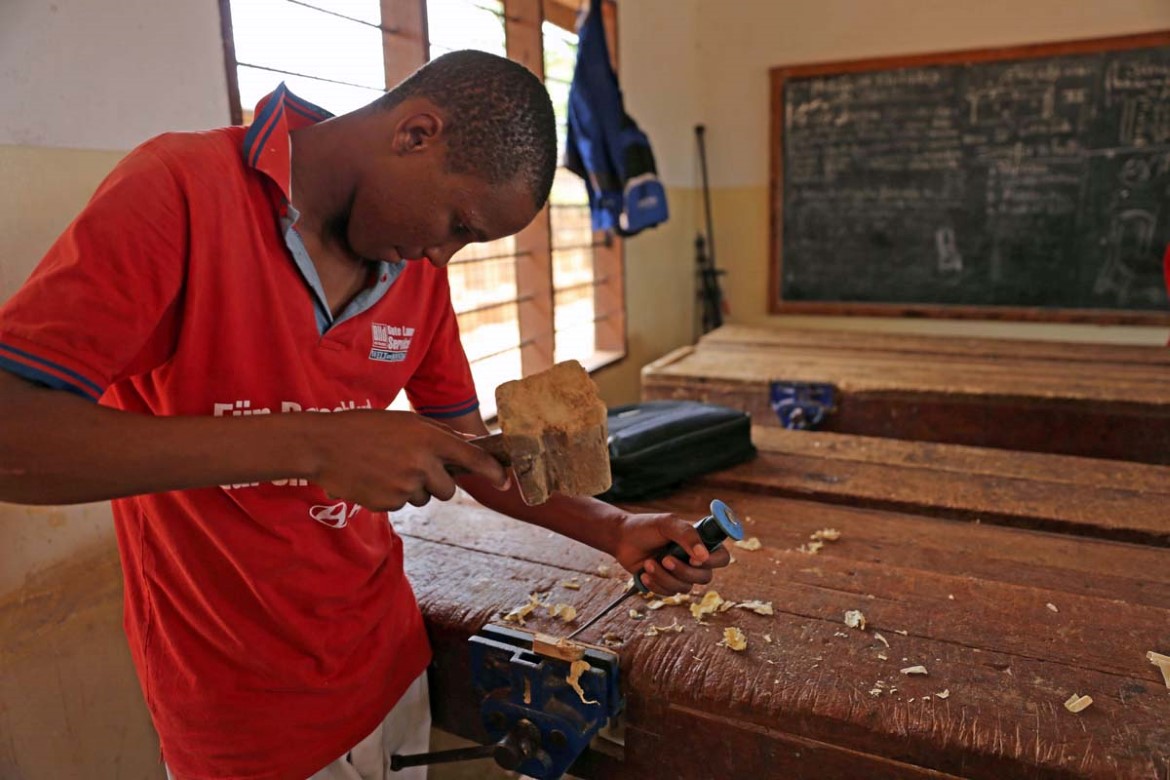
Vocational training and entrepreneurship
High-quality, relevant vocational education and training is a prerequisite for economic development. In many developing countries, vocational education and training is often of low quality and little suited to the needs of industry.
This has frequently resulted in a need for qualified workers, coupled with high unemployment, particularly among young people and young adults.
Vocational education and training can take place on many different levels, from short periods of training in practical skills to a high degree of specialized vocational education at university college level. Increased investment is needed at all levels.
Greater emphasis on vocational training
White Paper 25, Education for Development (2013-2014) focuses on vocational education and training as a priority area. The white paper underscores the importance of qualifying the current large youth cohort in developing countries for the labour market.
Most of the jobs that will have to be created in the future will be in the private sector. Hence close cooperation between education authorities and industry with regard to vocational education and training is essential to ensure that the training offered is relevant to the labour market and maintains the quality that is necessary.
Investment in entrepreneurship
In several countries, particularly in Africa, there are few businesses and jobs. A very low percentage of the workforce in sub-Saharan Africa is in permanent paid work. Many work in the informal sector, mostly in connection with agriculture.
Thus more knowledge and skills are needed which can be used to create new manufacturing and business activity. Training in establishing and running one’s own business is an important part of entrepreneurship training.
Entrepreneurship is generally a matter of creating something new, being creative, seeing opportunities and doing something to develop them.
More and more countries and international organizations world-wide recognize the importance of training for entrepreneurship, both within and outside of the formal education system.
Entrepreneurship training is suitable for all groups of students, but is considered especially important for students with a vocational background. This is because such students have better prospects of being able to produce something that others are willing to pay for than students who have taken general subjects.
Key actors
Vocational education and training, like other education and training, is essentially the responsibility of the government. Nevertheless, it is neglected in many countries.
The effort to qualify young people for the world of work is high on the international development agenda, with many actors involved. Globally, the World Bank, UNESCO and the International Labour Organization (ILO) are key actors.
- UNESCO has its own International Centre for Technical and Vocational Education and Training (UNEVOC) which supports the UNESCO member countries in developing their vocational education and training.
- The United Nations Industrial Development Organization (UNIDO) has been particularly involved in the development of entrepreneurship in the education system. Other UN organizations active in this area are The International Labour Organization (ILO) and The United Nations Development Programme (UNDP).
- Several of the international donors are also now more focused on the subject of youth job creation and vocational training. Germany has long been a leader in this area, but others have also begun to increase their involvement. These include DFID (UK), USAID (USA) and SIDA (Sweden).
- A number of Norwegian and international NGOs are also involved in interventions to develop vocational education and training.
- Some regional actors are increasingly active in promoting vocational education and training. Among them are The Africa Development Bank and the Association for the Development of Education in Africa (ADEA).
How Norway contributes
Norway supports vocational training through several different channels:
- E4D/SOGA – Employment and Skills for Eastern Africa is a program for vocational training in four East African countries: Kenya, Mozambique, Tanzania and Uganda. The programme is financed by Norway, Germany and Great Britain as well as the oil company Shell, and cooperates with businesses, institutions and governments in the four countries in order to promote vocational training relevant for the labour market.
- Building skills for jobs is a programme that supports partnerships between businesses and organisations in order to promote vocational training in developing countries. A total of nine projects have received support under the Building Skills for Jobs programme. There will be no further calls for proposals under this programme, which is administered by Norwegian Agency for International Cooperation and Quality Enhancement in Higher Education (Diku) and Norad.
- Norway supports ILOs work with vocational training.
- Norway supports the World Banks work with vocational training.
- Several Norwegian organizations receive funding for vocational training and entrepreneurship in developing countries.
- Some Norwegian embassies in developing countries give funding to vocational training through various actors.
